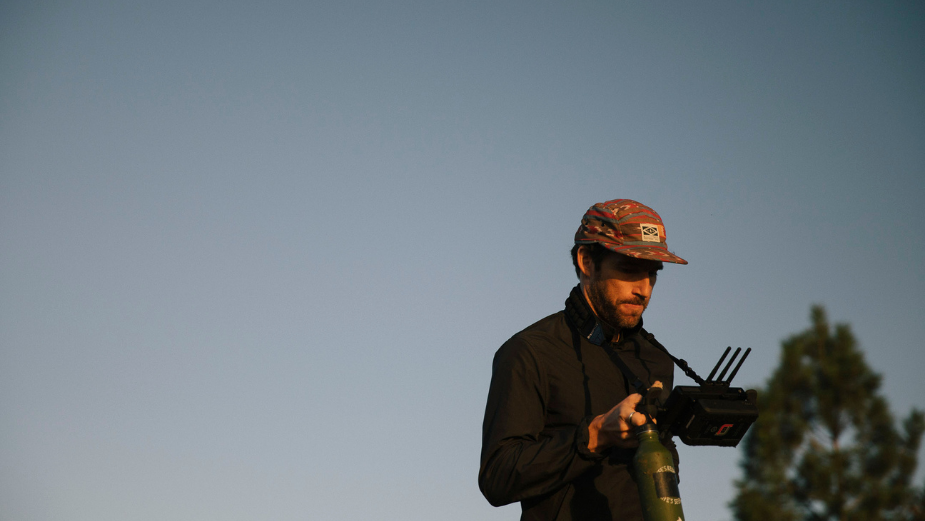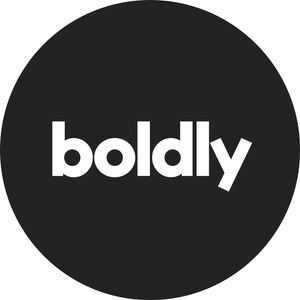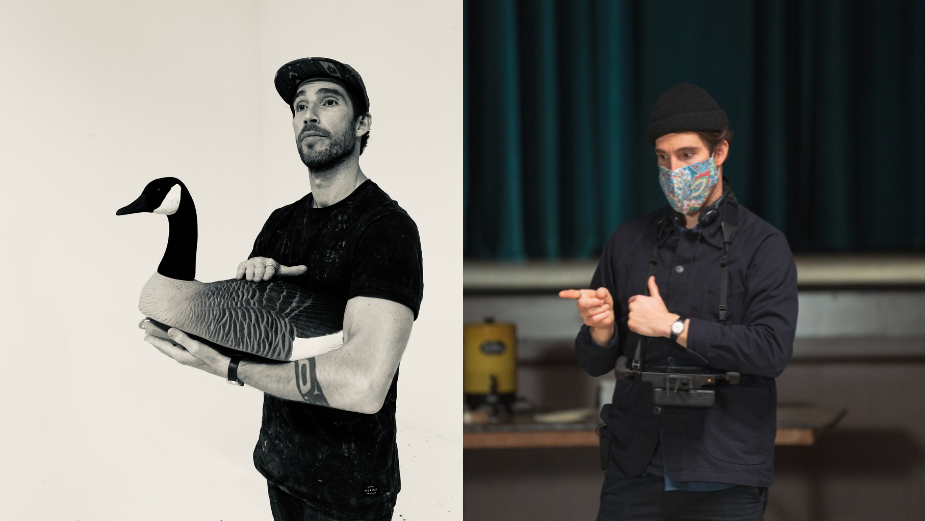
The Directors: Robjn Taylor

Robjn (pronounced: Robin) is a comedic Canadian commercial director who celebrates the unordinary. From all things peculiar, to outright baffling, he revels in the power of the unexpected and seeks to channel it within both the advertising landscape and the very life he leads. His filmmaking style embraces the surreal with a straight face, shaping ridiculousness with narrative purpose, to communicate and connect with viewers in ways they could not have foreseen. He is exceptionally skilled at reciting the alphabet backwards.
Since 2010, Robjn has specialised in commercials and branded content, for both broadcast and digital. He’s had the pleasure of directing thoughtful cinematic absurdities for a wide range of clients, including Nintendo, Okanagan Spring Brewery, Coleman Coolers, Olympus, K2, and Whistler Blackcomb.
Name: Robjn Taylor
Location: Vancouver
Repped by/in: Boldly, North America
Awards:
2x Vimeo Staff Pick,
Nominated - Best Product Launch at Vimeo Festival Awards,
Nominated - Best of the Year Vimeo Staff Pick
LBB> What elements of a script sets one apart from the other and what sort of scripts get you excited to shoot them?
Robjn> I'm most excited about the scripts that aren't afraid to sacrifice literal messaging in favour of being entertaining, funny, or just straight up bizarre. These spots focus on maybe one thing only, one subconscious message disguised as a laugh or a feeling. They reach into the proverbial cookie jar and pull out a deliciously intact cookie, instead of desperately grabbing a handful and crushing them all to pieces. Basically, I'm drawn to scripts that are completely original, mind-blowing, and hilarious, and perfect in every way. Is that too much to ask?
LBB> How do you approach creating a treatment for a spot?
Robjn> I comb over the script, identifying its key components worth embellishing/highlighting and then brainstorm solutions to any troublesome sections, if any. I think about the best possible way to shoot it within the real-world boundaries of time, physics, and money, and I carefully consider my dreams for every single aspect of production. Once I’ve completed the version of the spot in my head that I love most, then I set out to thoroughly describe it in the clearest yet most digestible way possible, while dressing it up nicely with a million images and other such visual accompaniments that might be helpful. Sometimes I spend too much time photoshopping an image to make it more relevant.
LBB> If the script is for a brand that you're not familiar with/ don’t have a big affinity with or a market you're new to, how important is it for you to do research and understand that strategic and contextual side of the ad? If it’s important to you, how do you do it?
Robjn> This is an extremely important aspect for me. I need to understand exactly what this ad wants to communicate to its viewers (whether consciously or subconsciously), so that I can make decisions moving forward that will ensure that viewers actually receive it. I'll scour the brand's site, Instagram, related interviews, reviews, YouTube videos, past commercials, whatever I need. Oftentimes, I’ll call up people in my life that belong to the demographic in question. I do this until I know, inside and out, what it is that would make this ad memorable and effective for me, if I was a potential customer.
LBB> For you, what is the most important working relationship for a director to have with another person in making an ad? And why?
Robjn> Once you've assembled a dream-team of professionals to will an ad into life, any one of those people will likely be critical to its success or failure at some point. So my relationships with each team member feel equally important, whether it's a creative director, the DP, the lead actor, the executive producer, or the horse named Legs who refuses to eat a carrot even though he loves carrots and I really need him to eat one right now. I want everyone to feel proud of the work they’re doing and to have a sense of ownership over their role, so that’s what guides my behaviour and attitude in general. This involves acknowledging strengths, showing genuine respect, and recognizing when I could have communicated something clearer, and then improving that.
Of course, I didn’t invent this style of interacting, I adopted it from many others (and am continually), and hopefully others will adopt it from me. In this way, all relationships within the team are strengthened, and not just mine. And it’s these relationships that are the lifeblood of filmmaking.
LBB> What type of work are you most passionate about - is there a particular genre or subject matter or style you are most drawn to?
Robjn> I love high energy content that's funny and weird. Those are my three favourite qualities of an ad, but I don't need all three. Just one of those will really give me something to sink my teeth into.
LBB> What misconception about you or your work do you most often encounter and why is it wrong?
Robjn> Great question! Humour is extremely subjective and because of that, I think that sometimes people might hear that I'm a comedy director and then consume my work looking for “jokes” or punchlines and they might not find any. What makes me laugh is often something that is specifically designed to not resemble anything funny. I'm sure there’s a term or theory that succinctly defines this, but I feel like now's not the time to get too academic about comedy. Chefs that love cooking with cilantro probably don’t spend too much time worrying about why some people, biologically, don’t like cilantro.
LBB> Have you ever worked with a cost consultant and if so how have your experiences been?
Robjn> I have not, although I bet it could be a real delight. I like working with people who specialize in things.
LBB> What’s the craziest problem you’ve come across in the course of a production – and how did you solve it?
Robjn> I was preparing for a shoot that featured Dracula, Cleopatra, and an alien. Dracula and Cleopatra had been very specifically cast, and the actors had already had their fittings and Covid tests and everything. The alien was custom-built and the details of it had been obsessed over for weeks. Less than 48 hours before the shoot, the client's upper-upper management decided this: "No Dracula, no Cleopatra, no alien. Make three new characters, thanks!" We couldn't recast because we didn't have time to Covid test new people. After some crash brainstorming based on the new direction, the agency and I settled on two strong alternatives, and then sent the wardrobe and hair stylists scrambling for new everything. As for replacing the alien: a backup had been cast for each character in the event of anything Covid related, so we were able to pull the lead's backup into the spot to become the lead's new human buddy. After all that, at 10pm the night before the shoot, our DP had to pull out because of a confirmed Covid exposure. Fortunately, we had a backup ready for him as well (we had one for everyone), and our original was still able to join remotely. Haha, good to be prepared!
LBB> How do you strike the balance between being open/collaborative with the agency and brand client while also protecting the idea?
Robjn> If I'm protecting an idea, I'll usually have several reasons to do so, not just one, and not just "because I like it this way". I love reasons. Equally as important as knowing what you want, is knowing why you want it, and then being able to communicate that clearly. This all ties into how crucial it is to understand the strategic/contextual side of the ad. I'm not precious about ideas or where they come from, as long as I'm confident that the ones that win out in the end are the ones that serve that strategy in the strongest way possible. Fortunately, a common component of most of these strategies is "we'd like it not to suck", so you can often lean into that pretty hard.
LBB> What are your thoughts on opening up the production world to a more diverse pool of talent? Are you open to mentoring and apprenticeships on set?
Robjn> Absolutely. By increasing the variety of exceptional talent we’re exposed to, we’re treated to more interesting content with richer perspectives, and voices that have yet to be heard. The more we celebrate the differences within humanity, the more we’ll recognize the similarities we share.
LBB> How do you feel the pandemic is going to influence the way you work into the longer term? Have you picked up new habits that you feel will stick around for a long time?
Robjn> There's an efficiency to much of the video-calling that I really like. It’s a tool that needs to be used right but, moving forward, I think that video calls for most meetings will be the way to go.
LBB> Your work is now presented in so many different formats - to what extent do you keep each in mind while you're working (and, equally, to what degree is it possible to do so)?
Robjn> Well, in terms of aspect ratios, I'm not a fan of trying to capture 9x16 at the same time as 16x9. At all. The cookie jar analogy works here as well; You're pulling out crumbs if you're trying to get a great image for both, simultaneously. I'll do what I can to encourage choosing just one ratio, or push for a 1x1, square to be the second if it’s really needed. After that, whether people are consuming the content on a phone, a laptop, a TV, or a theater screen, I try to treat them equally. Although, I'm definitely more concerned with sound design the bigger the screen gets.
LBB> What’s your relationship with new technology and, if at all, how do you incorporate future-facing tech into your work (e.g. virtual production, interactive storytelling, AI/data-driven visuals etc)?
Robjn> I romanticise the practical elements of filmmaking as much as the next Méliès fan, but mostly I prefer to focus on the content, and not get emotionally attached to the tools we're using, whether they're classic or cutting-edge. If I'm shown that the result I'd like is better achieved by one method over another, that's the one I want. I love fresh content, but sometimes I think many people are trying to blaze the same trail by using the hottest new thing, and it can all end up feeling overdone very quickly. Some of the most inventive images have nothing to do with new tech whatsoever. That said, I do love a good gadget!
LBB> Which pieces of work do you feel really show off what you do best – and why?
Robjn> For better or for worse, my work will have to do the talking for me here. Although, I will point out that my favourite stuff usually ends up on my personal site. Maybe one glorious day in the future, I’ll end up making a standalone, quintessential, magnum opus. If so, I’ll send you an email and kindly request that this answer be updated.














